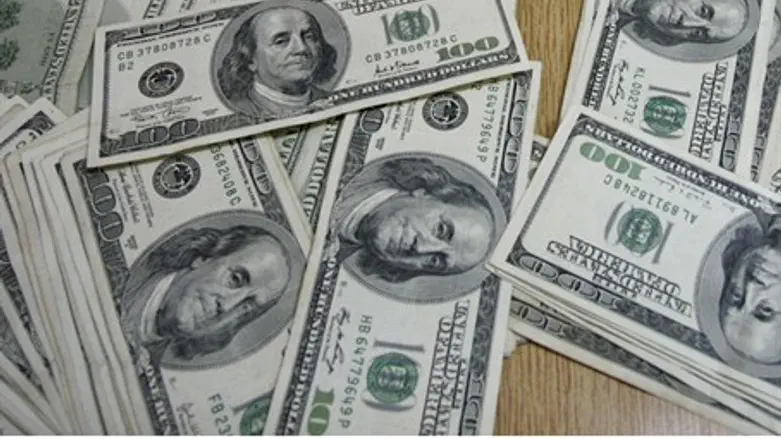
A new government regulation could required “change places” - licensed moneychangers – to report all transactions of at least NIS 50,000 to the government. The attachment, proposed by the Treasury, was presented in the Knesset Constitutional Committee as part of the discussion on the Arrangements Law, an addendum to the state budget that ensures funding for projects that for various reasons were not directly funded in the budget.
Currently, according to Treasury figures, there are some 1,500 money changers in the country. Money changer services are used largely by migrant workers, who convert their shekels into other currencies for wiring to their families abroad, and by tourists – both short and long-term – who cash checks in foreign currency at the moneychanger branches in exchange for shekels. The same services are offered by banks, but for higher fees.
However, according to the Treasury, some of the moneychangers are in the employ of criminals, who use their services for money laundering and tax avoidance. The law would not apply to credit card companies.
According to Avi Arditi, Deputy Director of the Tax Authority, some NIS 100 million ($28 million) “disappears off the Tax Authority's radar each year,” much of it going undetected because it does not flow through the traditional banking system.
Representatives of the money changing organizations argued at the meeting that the Treasury was picking on them, as other organizations, such as the credit card companies, had received an exemption from the law. MK Uri Maklev (UTJ) said that the legislation was “a true invasion of privacy, with the attitude that 'everyone is a crook.' Ordinary citizens do not deserve to be compared to, or treated like, heads of organized crime groups. With this law, Israelis will return to the black market for currency exchanges.”
Under current law, the money changers need to report on the aggregate of their activities, with only very large specific transactions reported.